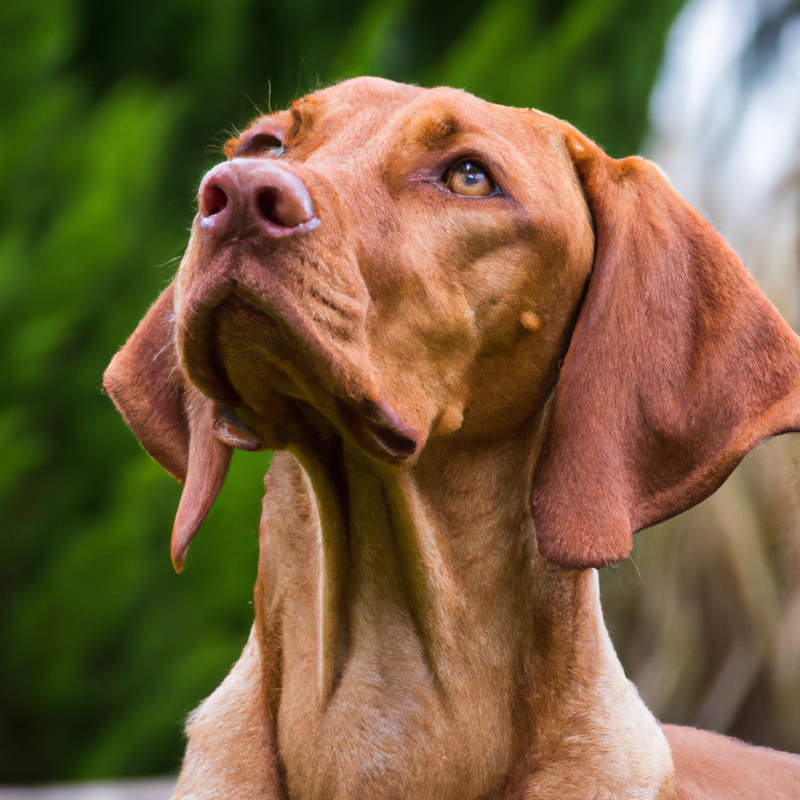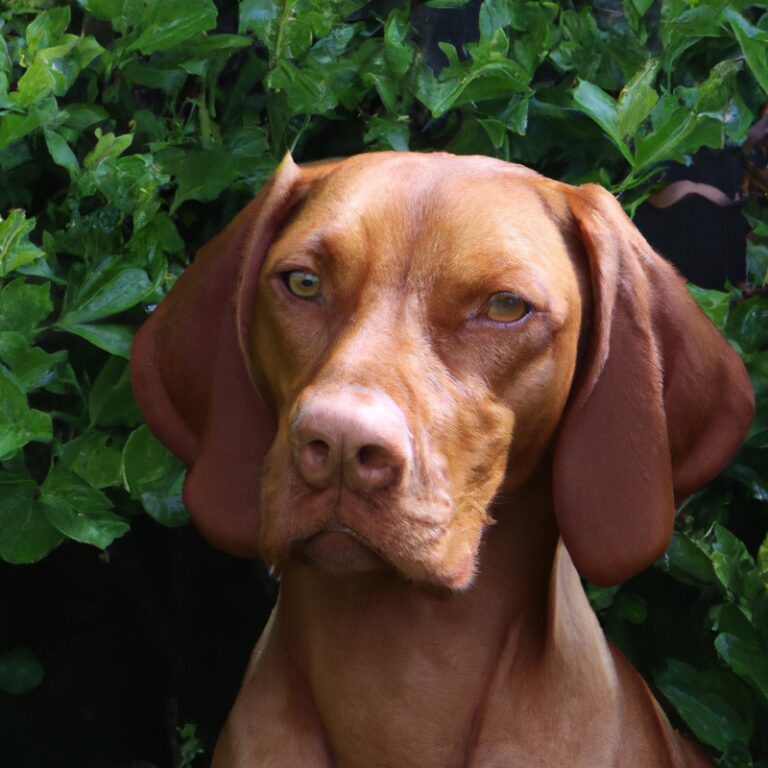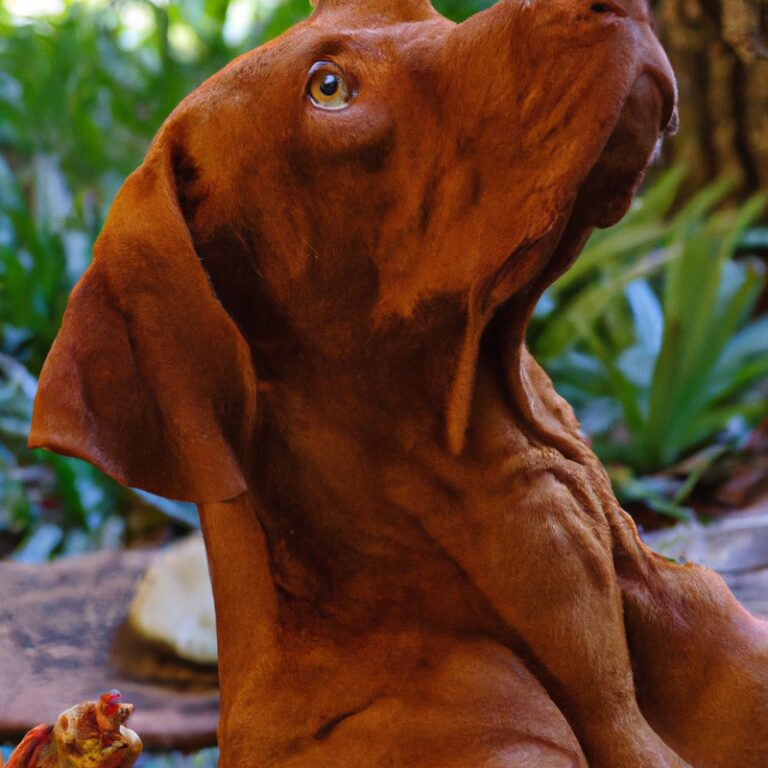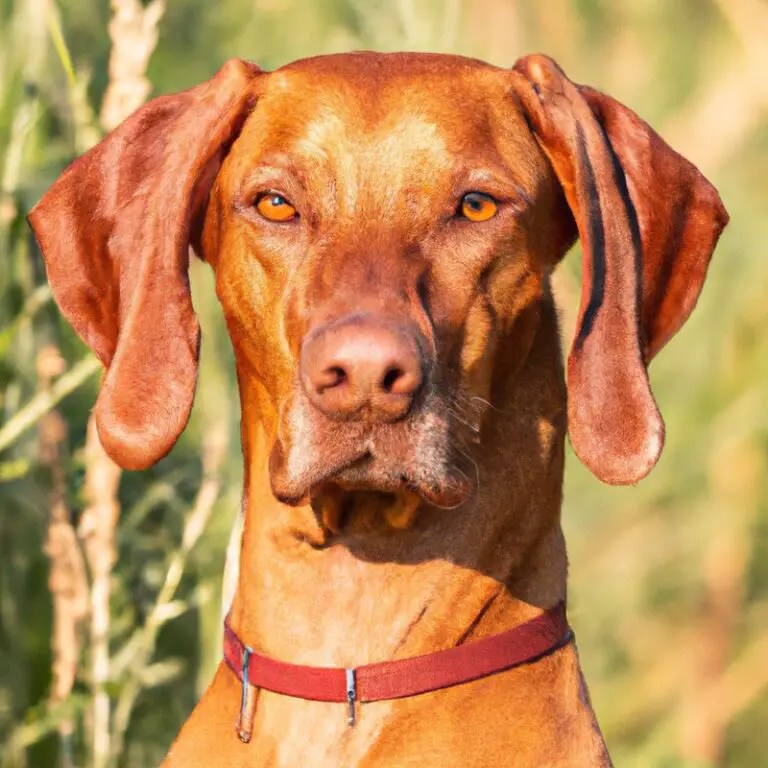What Are Some Potential Vizsla-Specific Food Allergies?
Key Takeaways:
- You need to be aware of potential food allergies specific to Vizslas.
- Some common food allergens for Vizslas include chicken, beef, and grains.
- Switching to a limited ingredient diet may help identify and manage allergies in your Vizsla.
- Consult with a veterinarian to determine the best approach for addressing your Vizsla’s food allergies.
Are you a proud owner of a Vizsla? These energetic and affectionate dogs can bring so much joy into our lives, but what happens when they start experiencing food allergies?
As a Vizsla owner myself, I know how important it is to understand and address these specific allergies.
In this article, I will guide you through the potential food allergens that can affect Vizslas, including commonly allergenic ingredients and protein sources that may trigger a reaction. We will also explore the steps to diagnose and manage these allergies effectively.
So, let’s dive in and ensure our furry friends stay healthy and allergy-free!
| Allergen | Potential Symptoms |
|---|---|
| Grains (wheat, corn, soy) | Itchy skin, ear infections, gastrointestinal issues |
| Poultry (chicken, turkey) | Vomiting, diarrhea, upset stomach, skin irritation |
| Beef | Red and itchy skin, digestive upset |
| Dairy (milk, cheese) | Vomiting, diarrhea, gas, bloating |
| Eggs | Diarrhea, skin allergies, itching |
| Fish | Vomiting, diarrhea, skin reactions, malaise |
Understanding Vizsla-specific Food Allergies
What are food allergies?
Food allergies are adverse reactions that occur when your immune system mistakenly identifies certain food substances as harmful. When you consume a food you’re allergic to, your body releases chemicals that can cause various symptoms.
These symptoms can range from mild, such as hives or itching, to severe, like difficulty breathing or anaphylaxis.
Common food allergies include milk, eggs, peanuts, tree nuts, fish, shellfish, wheat, and soy. Identifying and avoiding these allergens is crucial for managing food allergies and preventing potentially life-threatening reactions.
How do food allergies affect Vizslas?
Food allergies can have a significant impact on Vizslas. They can cause various symptoms such as itchiness, skin irritation, digestive issues, and even respiratory problems in some cases.
Identifying and avoiding the specific allergens is crucial for managing their allergies.
This may involve a trial and error process of eliminating potential allergens from their diet. Working closely with a veterinarian can help determine the best treatment plan for your Vizsla’s food allergies.
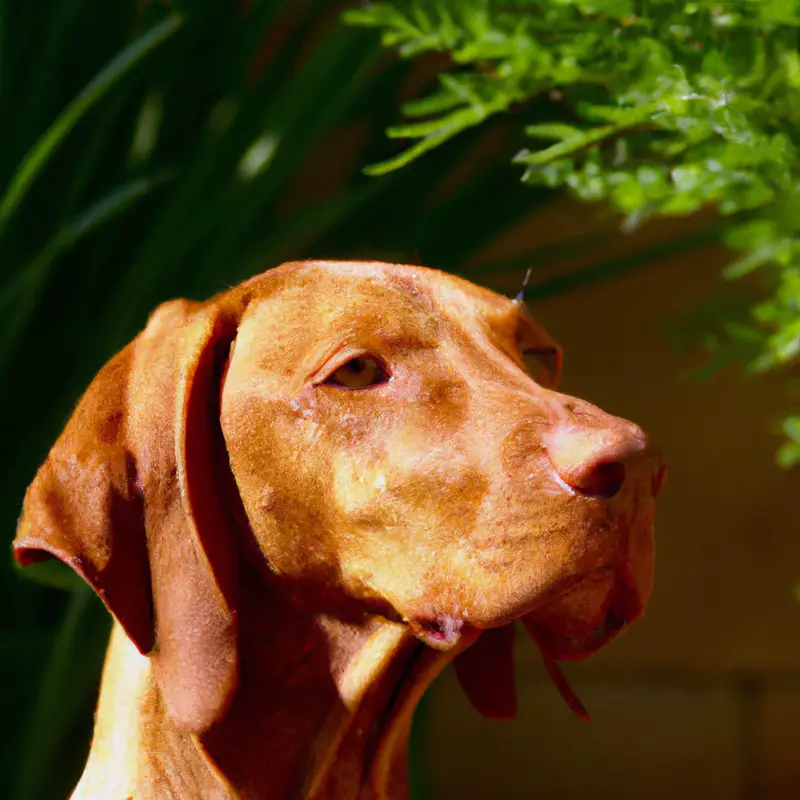
Common signs and symptoms of food allergies in Vizslas
Vizslas can exhibit several signs and symptoms if they have food allergies.
These can include itchy skin, frequent scratching, redness, and ear infections.
Digestive symptoms may include vomiting, diarrhea, and excessive gas.
Keep an eye out for any changes in behavior, such as lethargy or irritability after eating.
If you suspect your Vizsla has a food allergy, consult with your veterinarian for proper diagnosis and treatment.
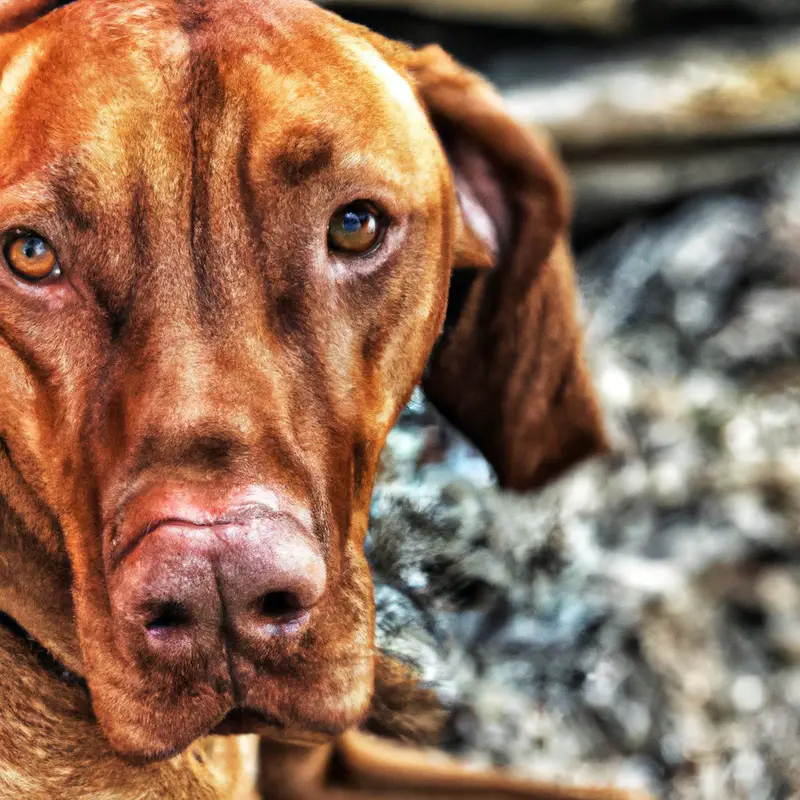
Identifying potential food allergens
Identifying potential food allergens for your Vizsla can be a process of elimination.
Start by keeping a detailed record of what your dog eats and any reactions they have.
Common allergens for Vizslas include beef, chicken, wheat, and dairy.
Gradually eliminate these ingredients from your dog’s diet to see if their symptoms improve.
You may also want to consider working with a veterinarian to conduct allergy testing to pinpoint specific triggers.
Remember, every dog is different, so it’s important to pay attention to your Vizsla’s individual needs.
Potential Food Allergens for Vizslas
Commonly allergenic ingredients
Commonly allergenic ingredients that Vizslas may have reactions to include:
- Chicken: This protein is a frequent culprit for food allergies in dogs.
- Beef: Some Vizslas may be sensitive to beef, causing allergic reactions.
- Dairy: Milk and other dairy products can cause digestive issues and allergies in Vizslas.
- Grains: Wheat, corn, and soy are common allergens, so opting for grain-free options may help.
- Fish: Certain Vizslas may be allergic to fish, so it’s important to monitor their reaction.
- Eggs: Allergies to eggs can cause skin irritations and digestive problems in Vizslas.
- Artificial additives: Artificial colors, flavors, and preservatives can trigger allergic reactions in sensitive Vizslas.
Ingredients to avoid
Ingredients to avoid when it comes to feeding your Vizsla include:
- Grains: Avoid feeding your dog food that contains grains such as wheat, corn, and soy. Vizslas are prone to food allergies, and grains can often be a trigger for allergic reactions.
- Artificial additives: Stay away from dog food that contains artificial colors, flavors, and preservatives. These additives can potentially cause digestive issues and allergic reactions.
- Dairy products: Vizslas are commonly lactose intolerant, so it’s best to avoid feeding them dairy products like milk, cheese, and yogurt. These can lead to upset stomachs and discomfort.
- Common allergens: Some Vizslas may have allergies to specific proteins like chicken, beef, or fish. It’s important to monitor your dog’s reactions to different protein sources and consult with a veterinarian if needed.
- Fillers and by-products: Avoid dog food that includes fillers like cornmeal, wheat flour, and animal by-products. These ingredients lack nutritional value and can potentially cause digestive problems for your Vizsla.
Remember to always read the ingredient labels carefully and choose high-quality dog food that caters to your Vizsla’s specific needs.
If you suspect your dog has a food allergy, seek advice from a veterinarian for proper diagnosis and guidance.
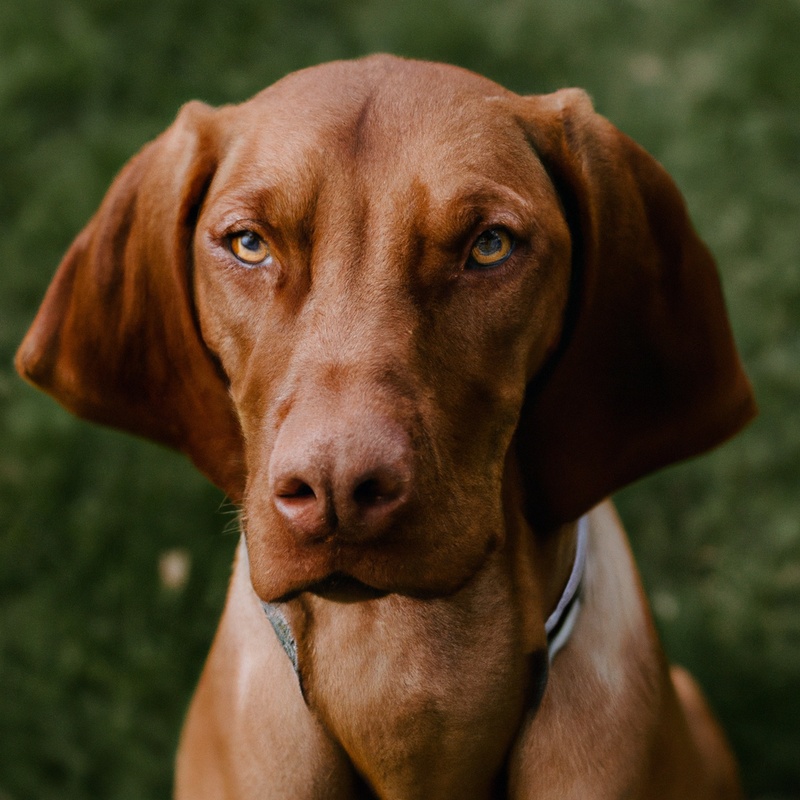
Understanding the role of grains in Vizsla food allergies
Grains can play a role in Vizsla food allergies.
They are a common allergen for many dogs and can cause symptoms like itching, digestive issues, and skin irritations in Vizslas.
With their sensitive digestive systems, Vizslas may have difficulty processing grains like wheat, corn, and soy.
If your Vizsla shows signs of food allergies, it may be worth considering a grain-free diet to see if their symptoms improve.
Always consult with a veterinarian before making any changes to your dog’s diet.
Protein sources that may trigger allergies in Vizslas
Some protein sources that may trigger allergies in Vizslas include:
- Chicken
- Beef
- Lamb
- Fish
- Dairy products
- Soy
- Wheat
- Corn
- Eggs
These ingredients can cause skin irritations, itching, gastrointestinal issues, and other allergy symptoms in Vizslas.
It’s important to carefully read ingredient labels and avoid these potential allergens in your dog’s food.
If you suspect your Vizsla has a food allergy, consult with your veterinarian for proper diagnosis and guidance on selecting a suitable protein source.
Diagnosing Food Allergies in Vizslas
Steps to determine food allergies
To determine food allergies in your Vizsla, consider following these steps:
- Consult with your veterinarian: Discuss your concerns and symptoms your Vizsla is experiencing.
- Conduct an elimination diet: Remove potential allergens from your dog’s diet and reintroduce them one at a time to identify the culprit.
- Keep a food diary: Document your Vizsla’s meals, treats, and any allergic reactions they experience.
- Perform diagnostic tests: Your vet may suggest blood tests or intradermal skin testing to identify specific food allergies.
- Follow-up with a trial period: If a specific food allergy is identified, eliminate that food from your Vizsla’s diet for a trial period to observe improvements.
Remember, it’s important to work closely with your veterinarian to determine the best approach for diagnosing and managing food allergies in your Vizsla.
Working with a veterinarian for proper diagnosis
To properly diagnose potential food allergies in your Vizsla, it is important to work closely with a veterinarian. They have the knowledge and expertise to conduct the necessary tests and examinations.
Your vet may recommend an elimination diet, where potential allergens are gradually eliminated from your dog’s diet to identify the culprit.
They may also perform blood tests or skin tests to further assess the allergies. Regular communication and collaboration with your vet will help ensure an accurate diagnosis for your Vizsla.
Allergy testing options for Vizslas
When it comes to allergy testing options for Vizslas, there are a few different routes you can take. One option is a blood test, which can help identify specific allergens that may be causing a reaction in your Vizsla.
Another option is a skin test, where small amounts of potential allergens are injected into your dog’s skin to see if a reaction occurs.
You can also consider an elimination diet, where you systematically remove certain ingredients from your dog’s diet to see if their symptoms improve. Remember to consult with your veterinarian to determine the best testing option for your Vizsla.
Managing Vizsla-Specific Food Allergies
Dietary adjustments for Vizslas with food allergies
If your Vizsla has food allergies, making dietary adjustments can be an effective way to manage their symptoms.
Here are some tips to help you navigate this situation:
- Identify the allergen: Start by identifying the specific ingredient or ingredients that are causing the allergic reaction in your Vizsla. This may require working with your veterinarian to conduct food trials or allergy tests.
- Read ingredient labels: Once you know what your Vizsla is allergic to, carefully read the ingredient labels of commercially available dog foods to ensure they do not contain those allergens. Look for limited ingredient or hypoallergenic dog foods that are specifically formulated for dogs with food allergies.
- Consider a homemade diet: If commercial dog foods still trigger your Vizsla’s allergies, you may need to consider preparing homemade meals for them. Consult with a veterinary nutritionist to ensure a balanced and nutritious diet.
- Introduce novel proteins: In some cases, Vizslas may develop allergies to proteins they have been exposed to for a long time. Introducing novel proteins, such as duck or venison, can help minimize the risk of triggering an allergic reaction.
- Avoid common allergens: Some common allergens for dogs include beef, chicken, wheat, soy, and dairy. Avoiding these ingredients in your Vizsla’s diet may help alleviate their allergy symptoms.
Remember, every Vizsla is unique, and what works for one dog may not work for another.
It’s crucial to work closely with your veterinarian to develop an individualized dietary plan that addresses your Vizsla’s specific food allergies.
Common hypoallergenic diets for Vizslas
When it comes to hypoallergenic diets for Vizslas, there are a few options you can consider. These include:
- Limited ingredient diets: Opt for dog food that contains a limited number of ingredients. This can help identify and eliminate potential allergens.
- Novel protein sources: Consider feeding your Vizsla a diet that includes protein sources they haven’t been exposed to before, such as venison or duck.
- Grain-free diets: Some Vizslas may have sensitivities to grains, so switching to a grain-free diet may alleviate their allergies.
- Homemade diets: If you have the time and resources, you can try preparing homemade hypoallergenic meals for your Vizsla. Just be sure to consult with a veterinarian to ensure a balanced diet.
Remember, every dog is different, so it may take some trial and error to find the right hypoallergenic diet for your Vizsla. Always consult with your vet for personalized recommendations.
Tips for introducing new foods to Vizslas with allergies
When introducing new foods to Vizslas with allergies, take it slow, one ingredient at a time. Start with a small portion and watch for any adverse reactions.
Gradually increase the amount over a few days if there are no issues.
Keep a food diary to track any allergies or sensitivities. Stick to high-quality, hypoallergenic options with limited ingredients.
It’s also a good idea to consult with your vet for guidance and recommendations.
Importance of regular monitoring and tracking progress
Regular monitoring and tracking progress are essential for managing Vizsla-specific food allergies. This allows you to identify any potential triggering foods and adjust the diet accordingly.
By keeping a close eye on your Vizsla’s symptoms and their reaction to different foods, you can make informed decisions about what to include or exclude from their diet.
Monitoring also helps you track any improvements or setbacks, allowing you to fine-tune their food choices for optimal health. Stay vigilant and keep a record of your Vizsla’s dietary progress to help ensure their well-being.
Frequently Asked Questions (FAQs)
Can Vizslas develop food allergies later in life?
Yes, Vizslas can develop food allergies later in life. Just like humans, dogs can develop allergies to certain foods at any age.
Symptoms of food allergies in Vizslas may include skin issues like itching and frequent ear infections, as well as digestive problems like vomiting or diarrhea.
If you suspect your Vizsla has a food allergy, it’s important to consult with your veterinarian to determine the specific allergen and create an appropriate diet plan.
Are there any breeds more prone to food allergies than Vizslas?
Yes, there are several breeds that are more prone to food allergies than Vizslas.
Some of these breeds include Bulldogs, Boxers, and Retrievers.
Food allergies can vary among individual dogs within a breed, so it’s important to pay attention to your specific dog’s symptoms and work with your veterinarian to determine the underlying cause and the best approach for managing their food allergies.
Can food allergies cause skin problems in Vizslas?
Yes, food allergies can cause skin problems in Vizslas. Just like humans, dogs can develop allergies to certain types of food.
These allergies can manifest in various ways, including skin issues such as itching, redness, and rashes.
If you notice your Vizsla experiencing these symptoms after eating certain foods, it’s important to consult with a veterinarian to determine the cause and appropriate treatment. They may recommend a specialized diet or allergy testing to pinpoint the specific allergen.
Can Vizsla-specific food allergies be cured?
Vizsla-specific food allergies cannot be completely cured.
However, with proper management and avoidance of trigger ingredients, symptoms can be controlled and minimized.
It is crucial to consult with a veterinarian to identify the specific allergens and develop a suitable diet plan for your Vizsla.
Additionally, regular monitoring and adjustments may be necessary to ensure your dog’s well-being.
With the right approach, you can help your Vizsla lead a happy, healthy life despite their food allergies.
Final Verdict
Understanding Vizsla-specific food allergies is crucial for the health and well-being of these beloved dogs.
By recognizing common signs and symptoms and identifying potential allergens, we can better manage and treat these allergies.
It’s important to avoid commonly allergenic ingredients, such as grains and certain protein sources, and work with a veterinarian to diagnose and create a suitable dietary plan.
Regular monitoring and tracking progress are essential for managing Vizsla food allergies successfully.
Remember, with the right approach and care, Vizslas with food allergies can lead happy, healthy lives.

